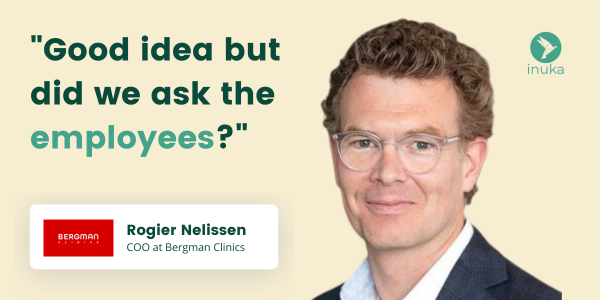Coaching plays a vital role in preventing burnout by identifying early warning signs, building resilience skills, and creating sustainable work habits before overwhelming stress takes hold. Professional coaching workplace programs help employees develop coping strategies, set healthy boundaries, and maintain work-life balance through personalised support and evidence-based techniques. This proactive approach addresses burnout at its roots rather than waiting for crisis intervention.
What exactly is burnout and how does coaching help prevent it?
Workplace burnout is a state of physical, emotional, and mental exhaustion caused by prolonged exposure to stressful work situations. It manifests through three key stages: emotional exhaustion, depersonalisation, and reduced sense of personal accomplishment. Employees experiencing burnout often feel overwhelmed, cynical about their work, and disconnected from their achievements.
Coaching burnout prevention works by addressing these issues before they escalate into serious problems. Professional coaches help individuals recognise their stress patterns and develop personalised strategies for managing workload and emotional responses. Rather than treating symptoms after burnout occurs, workplace wellbeing coaching focuses on building resilience and sustainable work practices.
The coaching process typically begins with understanding an individual’s specific triggers and stressors. Coaches work with employees to identify what situations, relationships, or demands contribute most to their stress levels. This awareness becomes the foundation for developing targeted strategies that prevent overwhelming situations from occurring.
Through regular coaching sessions, employees learn practical stress management techniques such as breathing exercises, mindfulness practices, and cognitive reframing methods. These tools help them respond to challenging situations with greater calm and clarity, reducing the cumulative stress that leads to burnout.
How does coaching identify burnout warning signs before they become serious?
Professional coaching excels at early detection of burnout indicators through systematic assessment tools and regular check-ins that monitor emotional, physical, and behavioural changes. Coaches are trained to recognise subtle shifts in motivation, energy levels, and work satisfaction that often precede full burnout symptoms.
Common early warning signs that coaching can detect include decreased enthusiasm for previously enjoyed tasks, increased irritability or impatience with colleagues, difficulty concentrating, and changes in sleep or eating patterns. Employees might also report feeling overwhelmed by normal workloads or experiencing a growing sense of cynicism about their role or organisation.
Employee coaching programs typically use structured assessment tools during initial sessions and regular intervals. These might include wellbeing questionnaires, stress level ratings, and goal achievement tracking. The data helps coaches and employees spot concerning trends before they become entrenched patterns.
Regular coaching conversations create a safe space for employees to discuss their challenges openly. Many people don’t realise they’re experiencing early burnout symptoms until they have the opportunity to reflect with a trained professional. This external perspective often reveals patterns that individuals can’t see themselves.
Coaches also monitor changes in an employee’s language and communication style during sessions. Shifts towards more negative language, expressions of helplessness, or decreased engagement in goal-setting activities can signal developing burnout risks that require immediate attention.
What specific coaching techniques actually work for burnout prevention?
Boundary setting and workload management strategies form the core of effective coaching burnout prevention techniques. These practical approaches help employees create sustainable work patterns and develop skills for managing competing demands without becoming overwhelmed.
Boundary setting involves helping employees identify their limits and communicate them effectively. Coaches work with individuals to establish clear guidelines about working hours, availability for additional projects, and appropriate responses to unrealistic demands. This includes practising scripts for saying no professionally and negotiating workload adjustments when necessary.
Stress response techniques focus on changing how individuals react to challenging situations. Coaches teach methods such as the pause-and-breathe technique, where employees learn to take a moment before responding to stressful emails or requests. This simple practice prevents reactive responses that often increase stress levels.
Goal realignment represents another crucial technique. Many employees experience burnout because their daily activities don’t align with their values or long-term objectives. Coaches help individuals reassess their priorities and make adjustments that bring greater meaning and satisfaction to their work.
Time management and energy management strategies help employees work more efficiently while preserving their wellbeing. This includes identifying peak performance times, scheduling demanding tasks accordingly, and building regular breaks into the workday. Coaches also help employees recognise the difference between being busy and being productive.
How does workplace coaching create long-term burnout protection?
Workplace coaching builds lasting resilience through developing comprehensive coping mechanisms and life skills that protect against future burnout episodes. This long-term approach focuses on creating sustainable habits and mindsets rather than quick fixes for immediate problems.
Developing robust coping mechanisms involves teaching employees multiple strategies for handling stress and adversity. Coaches help individuals build a toolkit of techniques they can use in different situations, from breathing exercises for immediate stress relief to problem-solving frameworks for complex challenges.
Communication skills development plays a vital role in long-term burnout prevention. Employees learn how to express their needs clearly, ask for support when necessary, and have difficult conversations with managers or colleagues. These skills prevent many stress-inducing situations from escalating into major problems.
Creating support systems within and outside the workplace provides ongoing protection against burnout. Coaches help employees identify potential mentors, build stronger relationships with colleagues, and maintain connections that provide emotional support during challenging periods.
Work-life integration practices ensure that employees maintain perspective and energy renewal outside their professional roles. This goes beyond traditional work-life balance to create a sustainable approach where personal and professional aspects of life complement rather than compete with each other.
Employee burnout solutions through coaching also include developing self-awareness skills that help individuals monitor their own wellbeing ongoing. Employees learn to recognise their early warning signs and take proactive steps before stress becomes overwhelming.
What role does coaching play in helping teams prevent collective burnout?
Team-level coaching addresses collective burnout through improving workplace culture and communication patterns that affect entire groups. This approach recognises that burnout often spreads through teams when underlying systemic issues aren’t addressed effectively.
Improving workplace culture involves working with teams to establish shared values, expectations, and support mechanisms. Coaches facilitate conversations about team norms, helping groups identify practices that contribute to stress and develop alternatives that promote wellbeing for everyone.
Enhanced communication patterns prevent many issues that lead to team burnout. Coaches help teams establish regular check-ins, clear feedback processes, and methods for addressing conflicts before they escalate. This creates an environment where problems are solved collaboratively rather than becoming sources of ongoing stress.
Workload redistribution strategies ensure that no individual team members become overwhelmed while others have manageable responsibilities. Coaches work with teams to assess current workload distribution, identify imbalances, and develop fair systems for sharing responsibilities based on capacity and skills.
Creating supportive team environments involves building cultures where employees feel comfortable seeking help and offering assistance to colleagues. This mutual support system provides natural protection against burnout by ensuring that individuals don’t face challenges alone.
Workplace coaching benefits extend to helping teams develop collective resilience skills. This includes establishing team-level stress management practices, creating shared resources for handling difficult situations, and building group problem-solving capabilities that reduce individual stress levels.
When you’re ready to implement comprehensive burnout prevention strategies for your organisation, we at Inuka Coaching provide evidence-based workplace wellbeing coaching solutions that address both individual and team-level needs. Our Inuka Method combines personalised support with measurable outcomes, helping you create a resilient workforce that thrives rather than merely survives workplace challenges. To learn more about how we can help your organisation, please contact us today.







